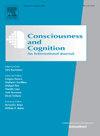做梦本身就是一种有意识的体验:非认知和非执行的做梦理论的支持者遭受着对他们清醒时扩展自我的追溯幻觉的折磨
IF 2
3区 心理学
Q2 PSYCHOLOGY, EXPERIMENTAL
引用次数: 0
摘要
对许多有影响力的梦研究者来说,做梦的意识和清醒的意识是不同的。在其最激进和矛盾的形式中,这种理论立场坚持认为梦是一种缺乏认知途径的意识体验。在一种更为温和和常见的形式中,做梦者对梦境体验有认知通路,但缺乏任何执行功能:他们在梦中对自己的思想和行为没有有意识的控制。换句话说,考虑做梦的意识意味着自我调节的丧失。这两种理论都不成立。首先,因为表明梦是有意识体验的原因,即我们在醒来时能回忆起梦的事实,意味着梦在做梦者注意到它们的最小意义上是有意识的。第二,因为,与第一个证据一致,梦报告也表明做梦者能够理性地评估他们在梦中所处的情况,并因此自我调节他们的梦行为。然而,我认为,做梦的人减少了,如果改变了,扩展了意识,限制了他们清醒时的自传体自我,这可以解释为什么许多研究人员有回顾性的错觉,认为梦中的自我对梦中的思想和行为没有理性的控制。事实上,调节和回忆梦境的不是那个自传式的自我。最后,梦发生在睡眠大脑的特定条件下,这一事实不应妨碍我们认识到梦本身就是一种有意识的体验。本文章由计算机程序翻译,如有差异,请以英文原文为准。
Dreaming is a conscious experience in its own right: proponents of non-cognitive and non-executive theories of dreaming suffer from a retrospective illusion of their waking extended self
To many influential dream researchers, dreaming consciousness is not of the same kind as waking. In its most radical and paradoxical form, this theoretical stance consists in maintaining that dream is a case of conscious experience lacking cognitive access. In a more moderate and common form, dreamers have cognitive access to their oneiric experience but lack any executive function: they have no conscious control over their thoughts and actions within the dream. Consideration of dreaming consciousness, in other words, would imply the loss of self-regulation. Neither of these two theories holds. First, because the very reason showing dreams are consciously experienced, i.e. the fact we can recollect them on awakening, implies they are access conscious in the minimal sense that the dreamer noticed them. Second, because, consistent with this first evidence, dream reports also indicate dreamers are able to rationally assess their situation within the dream and self-regulate their dream behavior as a result. I argue, however, that dreamers have reduced, if altered, extended consciousness with limited access to their waking autobiographical self, and that this could explain why many researchers have the retrospective illusion that the dream ego has no rational control over its thoughts and actions in the dream. Indeed, it is not the same autobiographical self that regulates and recollects the dream. Finally, the fact that a dream takes place in the particular conditions of a sleeping brain should not prevent us from recognizing that it is a conscious experience in its own right.
求助全文
通过发布文献求助,成功后即可免费获取论文全文。
去求助
来源期刊

Consciousness and Cognition
PSYCHOLOGY, EXPERIMENTAL-
CiteScore
4.30
自引率
8.30%
发文量
123
期刊介绍:
Consciousness and Cognition: An International Journal provides a forum for a natural-science approach to the issues of consciousness, voluntary control, and self. The journal features empirical research (in the form of regular articles and short reports) and theoretical articles. Integrative theoretical and critical literature reviews, and tutorial reviews are also published. The journal aims to be both scientifically rigorous and open to novel contributions.
 求助内容:
求助内容: 应助结果提醒方式:
应助结果提醒方式:


